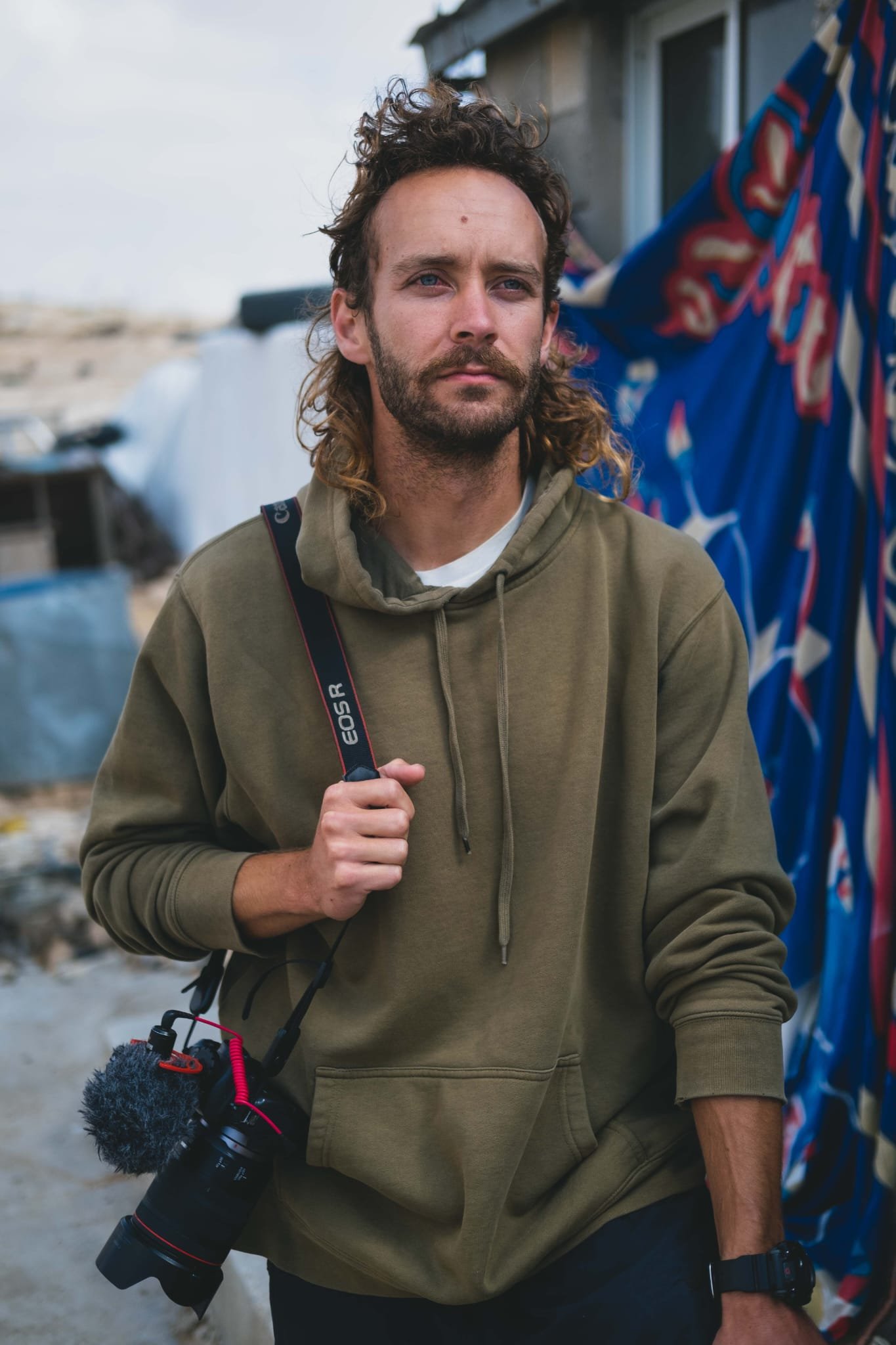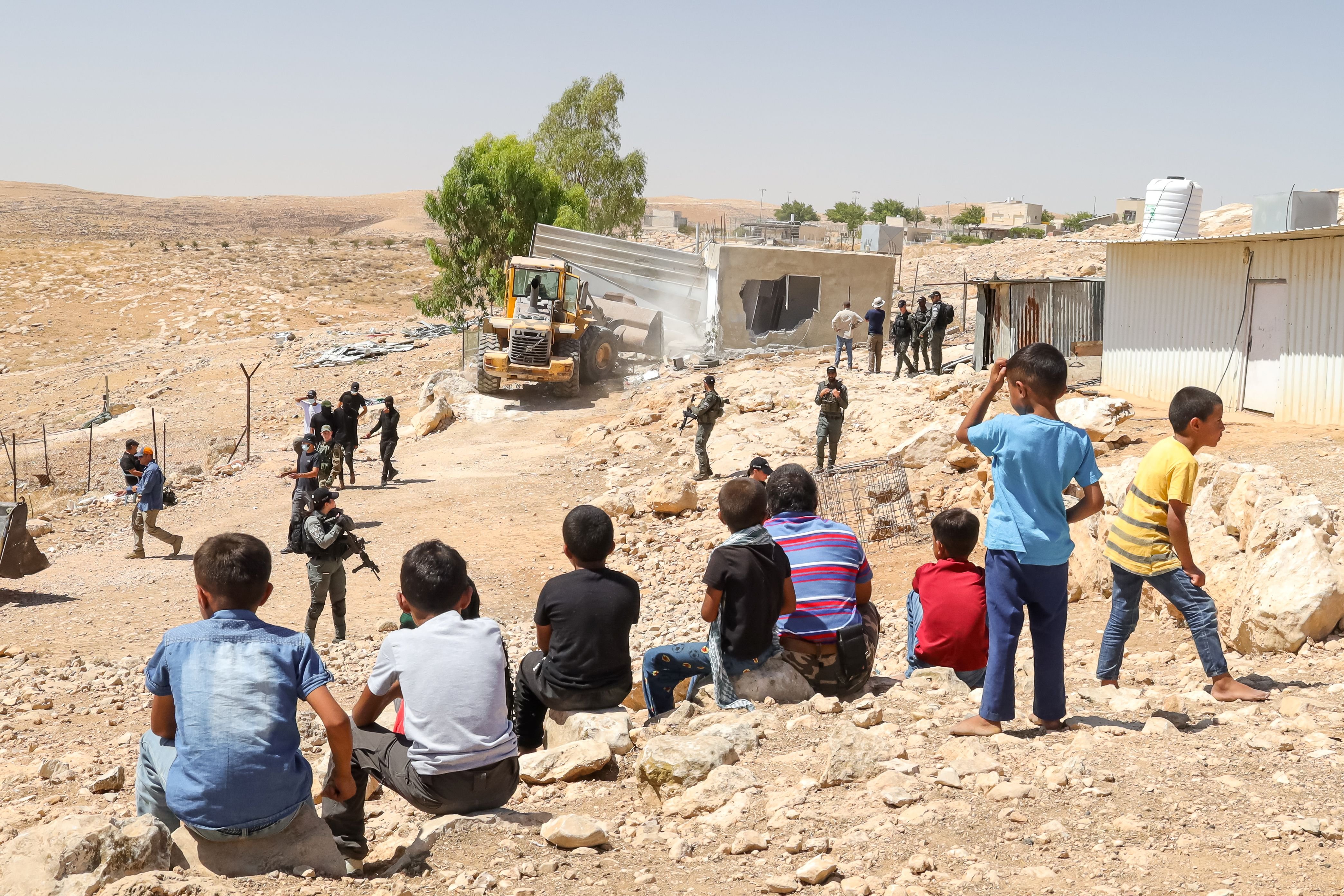
Photo/video journalist Cole Martin spoke at a public meeting at St Enoch church and to students at St Gerard’s school.
About 40 people attended the St Enoch’s meeting, he said.
"Many knew very little about Israel’s occupation and apartheid, others had family members very supportive of Israel’s domination in the region and were keen to hear more about the struggle of Palestinian communities, particularly Palestinian Christians, in order to educate their loved ones about how harmful support for the Israeli regime really is on the ground, and some who knew a fair bit and were keen to hear more directly from a Kiwi fresh off the ground," Mr Martin said.
The following morning he spoke to several classes at St Gerard’s school about the beauty of Palestine and its rich religious and cultural history, which often get overlooked amid the destruction and horror. He also explained some of the less-confronting aspects of injustice that Palestinian Christians and refugee communities face under Israeli domination.
"The kids really loved learning about Palestinian embroidery and cultural symbols woven into the Kufiyeh scarf, and asked some really inquisitive questions about life in the refugee camps, the Christian Nassar family who are facing expulsion by settlers from their farm near Bethlehem, and working as a journalist in areas where soldiers often harass communities. It was a really lovely opportunity to share about hope, resilience, and the beauty of Palestinian culture beyond the destruction and injustice also."

"Living in Aida Refugee camp was a sobering privilege — one of almost 60 across the region. These camps aren’t tent cities as many imagine, they’re full of families who were displaced by Israel’s establishment in 1948, so almost eight decades later they resemble small built-up cities; densely packed, multi-storied concrete buildings, narrow streets, limited infrastructure, hap-hazard accessibility, restricted water, and a tight-knit community who face frequent military raids. The extreme generosity despite their struggles is humbling; those who’ve been there all agree the hospitality of Palestinians is unmatched."
Travelling around held its own challenges, he said.
"The West Bank is covered in military checkpoints, roadblocks, and a network of settler-only roads connecting fenced-off towns built exclusively for Jewish-Israelis and designed to divide the remaining Palestinian land into small enclaves. Palestinian towns and villages are cut off from one another and can be isolated by Israeli authorities without notice. All entry and exit is policed by Israel, too, with intrusive checks, facial-recognition, and a system of permits and IDs which prevent most locals from ever visiting Israel, the sea, or their own holy sites in Jerusalem — despite often living just minutes away."
The stories he covered were often close to home, particularly when he reported on the murder of his friend Awdah Hathaleen, a father of three and human rights defender who was shot dead by an Israeli settler, on film and in broad daylight.
Mr Martin spent the following weeks covering the continued targeting of Awdah’s community, with more than 20 family members abducted and assaulted in captivity by Israeli military; Awdah’s body being seized and withheld from the family; 60 of the village’s woman going on hunger strike demanding his return and even Israel’s prevention of many close friends from attending Awdah’s funeral more than 10 days later.
Mr Martin was now developing a video resource for churches, while travelling and sharing his insights.











